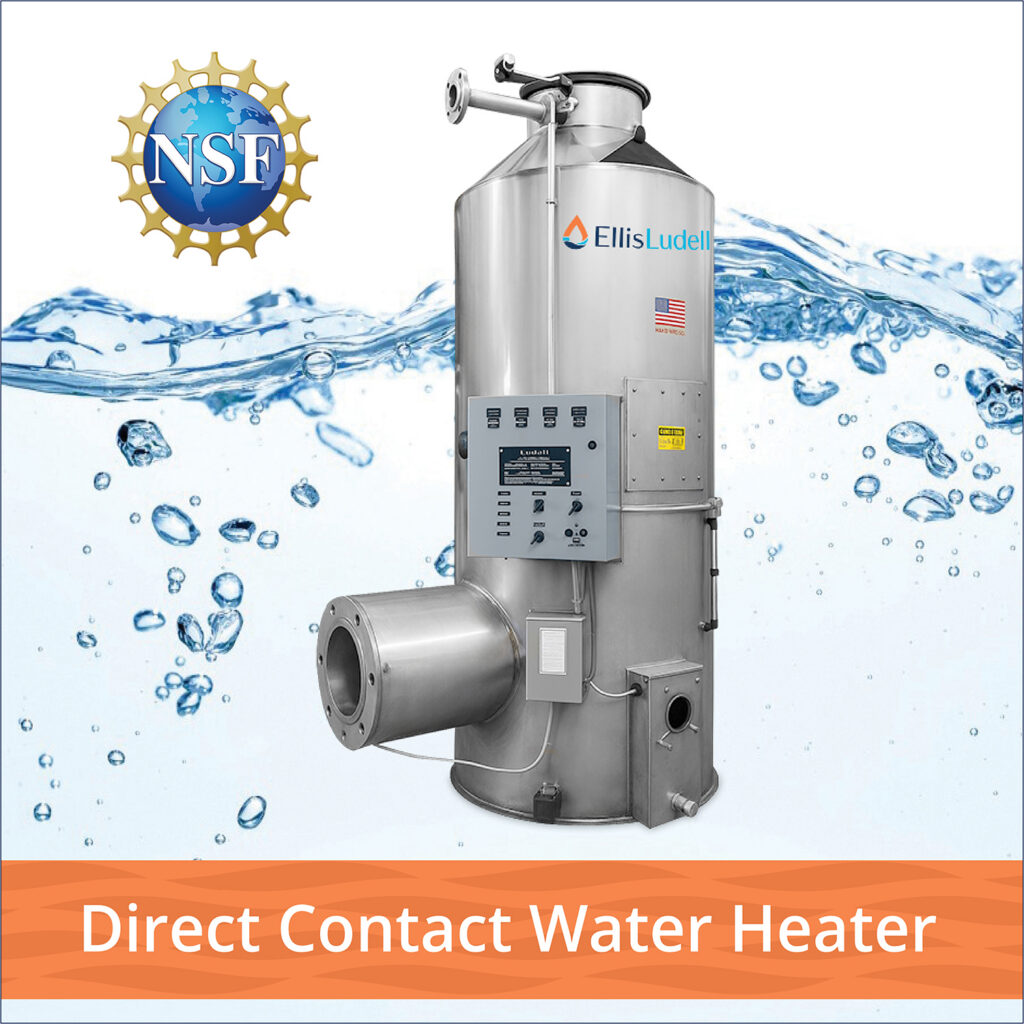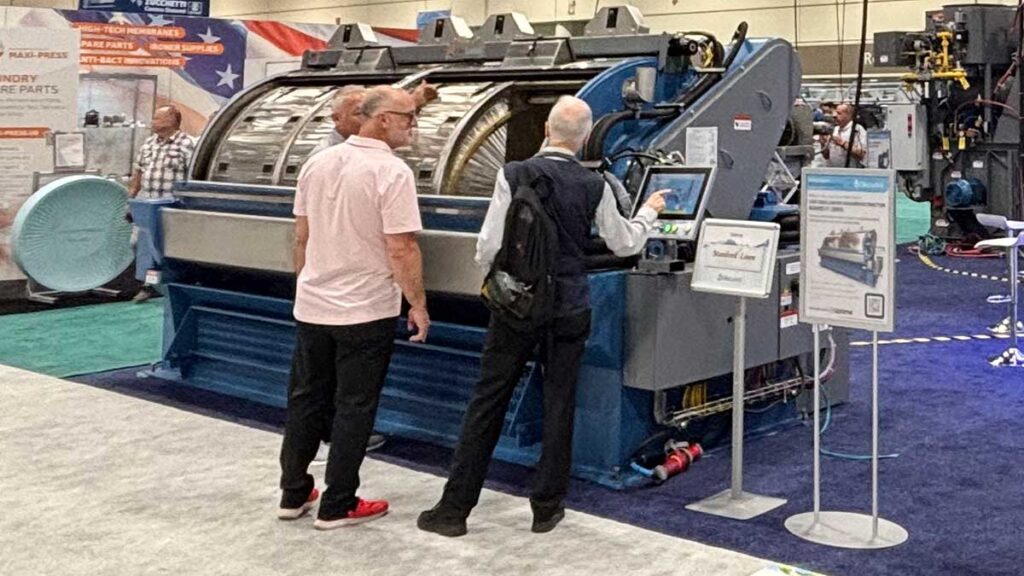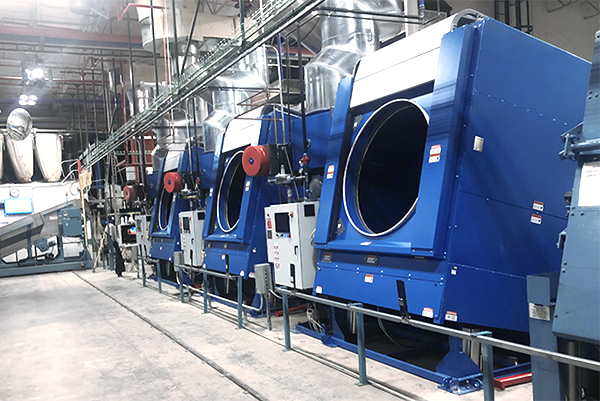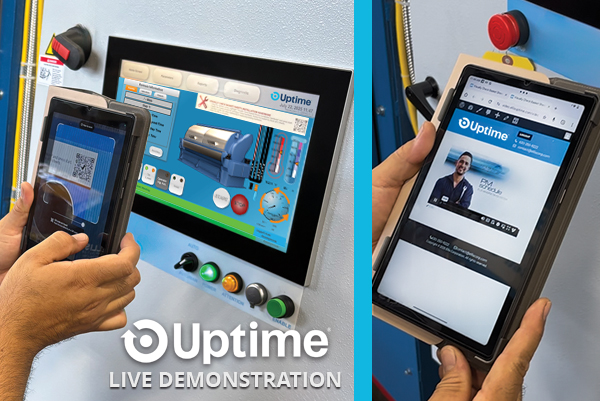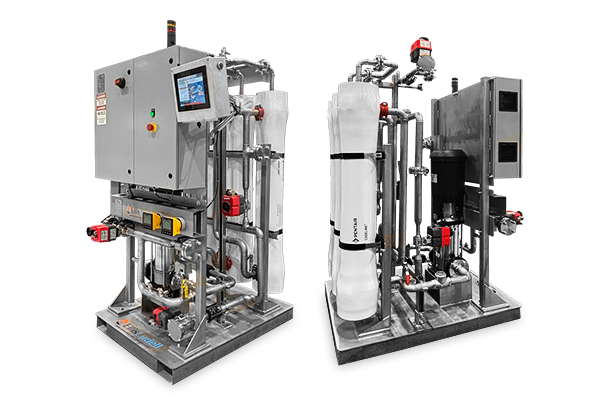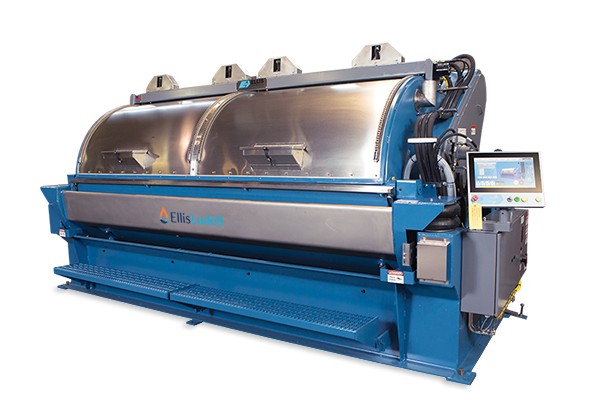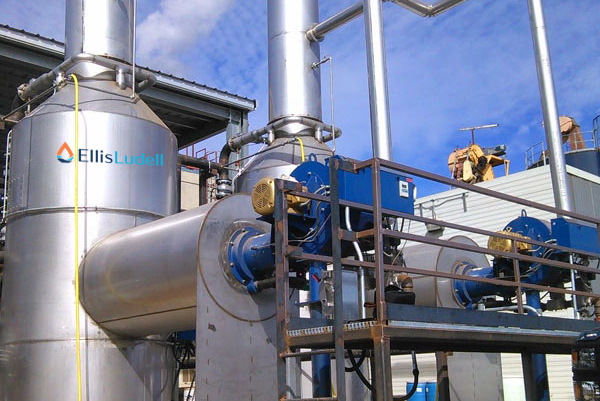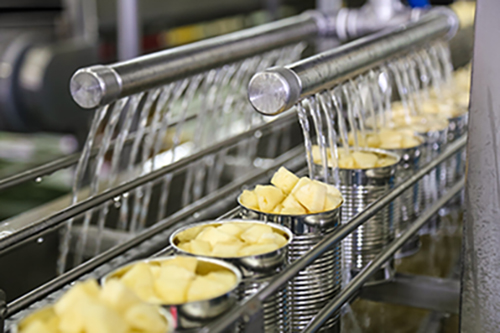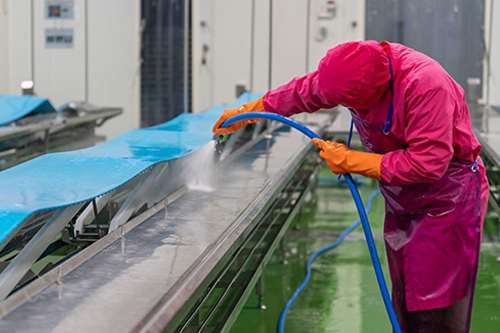Settle Down and Clean Up with the Ellis Inclined Plate Clarifier
Ellis engineers have designed a separation technology so simple it’s like a bushel of apples just fell out of the sky and landed on their heads. Accordingly, manipulation of gravity is the key concept in Ellis’ Inclined Plate Clarifier (IPC). With a large settling surface area in a small footprint, you can remove more solids while saving space and installation costs.
To provide optimum settling of solids, the clarifier plates are angled at 55 degrees, delivering an increased amount of settling surface area. A non-clogging inlet diffusion baffle distributes flow evenly over the width of the separator and allows gravity to do the work from there. Entrained solids settle onto the top surface of the lower plate and slide down to be collected in the sludge hopper, which can be easily discharged without removing the plates. Once the process is complete, you’re left with cleaner, near solids-free water that exits the top of the plate area and overflows an adjustable weir.
Along with its time-tested design and ability to separate solids, the IPC process is energy efficient. The high quality effluent from the IPC often eliminates the need for any polishing filtration. The optional sludge thickening conveyor also maximizes solids concentration while gently moving solids to the point of discharge. This delivers consistent solids concentration without water channeling.
The IPC can be used in a variety of applications and industries, including: fluoride removal, heavy metal precipitation, stone washing of textiles, solids from scrubber water, food grade starch, vegetable fluming, and more. Most often, the IPC is used in manufacturing when reducing total solids (TS) and suspended solids (TSS) from wastewater.
With optimal clarification and a small footprint, the IPC is a great option for solids separation. Learn more about the Inclined Plate Clarifier.
Contact Us
We are here to answer your questions about water treatment, water heaters, and/or laundry equipment. Whether you need to replace existing equipment or engineer a whole new solution, contact EllisLudell for a solution right for you.
Related Blogs
Why Sanitation Hot Water Reliability Matters More Than Most Food Plants Realize
Sanitation only works when hot water keeps up. That sounds simple. But in food and beverage plants,…
Clean Show 2025 Recap: The Sideloader Leads the Way
Clean Show 2025 proved once again that EllisLudell is a force in industrial laundry. From the moment…
Whisper Dryer: Quiet Power That Speaks Volumes
Some dryers make noise. This one makes results. The EllisLudell Whisper Dryer is not just built for…
Uptime® – Equipment That Knows Exactly What to Do
Some machines run. Others think. Then there is the kind that changes how your team works from…
The Smarter Way to Clean Water Starts Here. Where Water Is Not Just Clean, It Is Competitive.
You do not just need water filtration. You need water control. You need fewer chemicals in your…
This Is What Intelligent Laundry Looks Like. Meet the Sideloader Built to Work
Let’s cut to it. You’re not in this industry for fluff. You need machines that show up,…
Why EllisLudell’s Certified DCWH Sets a Higher Standard
See It First at The Clean Show What you’ll see at booth 2811 at The Clean Show…
The Cost of Cutting Corners in Industrial Laundry: What You Risk with a Non-Certified Water Heater
In industrial laundry operations, cost and lead time often drive equipment decisions. But when your water heating…
Certified Water Heaters Protect Temperature and Product Quality in Food Processing
Food safety is not just a priority. It is a requirement that touches every decision you make…
NSF Certification: A Critical Standard for Food Processors
In the food processing industry, water plays a central but often underappreciated role. It supports sanitation, blending,…

